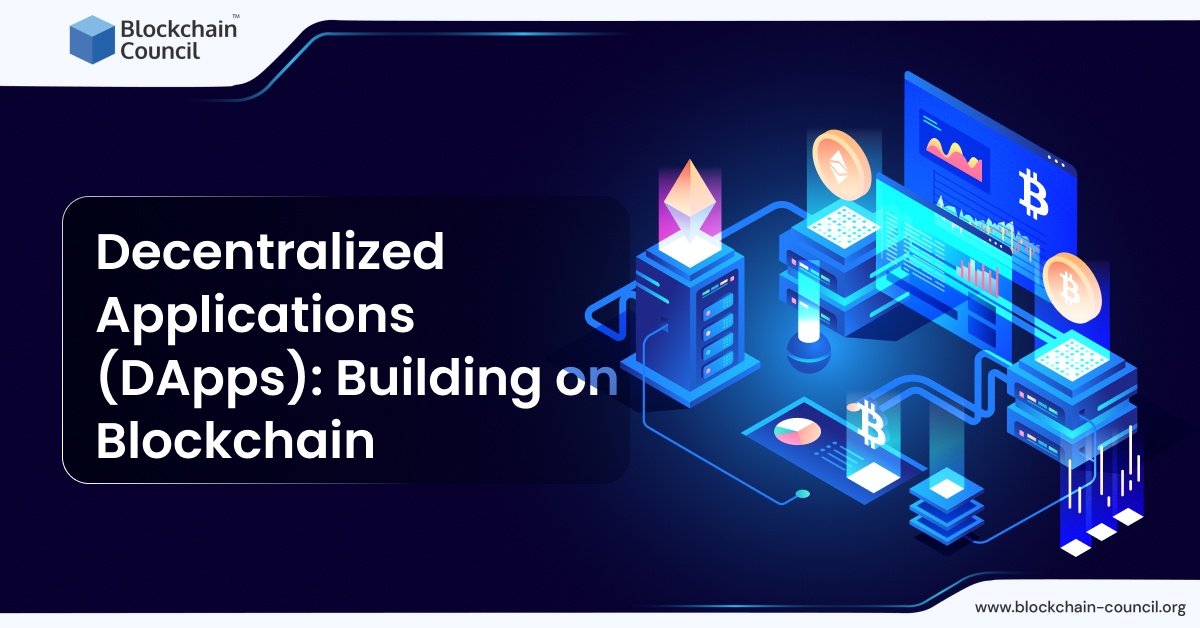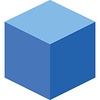Blockchain has emerged as a revolutionary force in the ever-evolving environment of technology, changing traditional processes and paving the way for novel solutions. Blockchain is a distributed ledger for digital transactions. Decentralized applications, or DApps, are at the center of this transformation. They present a paradigm shift in understanding, interacting with, and constructing applications. Decentralized applications (DApps) utilize blockchain technology's core principles to build decentralized, secure, and transparent systems that function without a central authority. In the following paragraphs, we will delve into decentralized applications (DApps), examining their fundamentals, features, and crucial role in the digital ecosystem.
Understanding Ethereum DApps:
Ethereum, a pioneering blockchain platform, was the first to propose intelligent contracts, making creating decentralized applications (DApps) easier. Ethereum, in contrast to Bitcoin, serves as more than just a digital currency; it also functions as a decentralized platform for building decentralized applications (DApps) through its powerful scripting language, Solidity. Developers can create decentralized applications from different industries because of Ethereum's flexibility and support for smart contracts. These applications can be used in multiple fields, including gaming, healthcare, and supply chain management.
Smart contracts: The backbone
The development of decentralized applications (DApps) relies heavily on smart contracts, self-executing contracts with their terms and conditions written on the blockchain. By eliminating the need for intermediaries and automating the process of enforcing agreements, these contracts provide transparency and reduce the likelihood of fraud or manipulation. In decentralized applications (DApps), smart contracts make it possible to execute transactions seamlessly and facilitate the implementation of complicated features. Based on predetermined circumstances, they function by initiating activities when particular criteria are satisfied. This results in the simplification of processes and the improvement of efficiency across a wide range of industries.
Decentralized applications (DApps): A Developer's Perspective
Understanding the complexities of decentralized applications (DApps) is essential for aspiring developers interested in blockchain development. One of the most important steps is to get a strong command of Solidity, the programming language used for automated contracts. Individuals can acquire a complete education in blockchain technology through various online blockchain courses that provide instruction on the principles of blockchain development. By completing these courses, prospective blockchain developers will gain the knowledge and abilities to construct, implement, and maintain decentralized apps efficiently.
Interoperability and Scalability Challenges:
In decentralized applications (DApps), interoperability and scalability are two major problems. It is becoming increasingly apparent that there is a need for smooth interaction across different protocols as the number of decentralized applications (DApps) across various blockchain networks continues to expand. Developers are investigating potential solutions such as cross-chain communication protocols and layer-two scaling solutions to facilitate interoperability and improve scalability. These efforts aim to establish a network of interconnected ecosystems in which decentralized applications (DApps) can communicate with one another and conduct transactions without any difficulty, irrespective of the blockchain they are operating on.
Security in DApps:
Security remains paramount regarding the development and deployment of decentralized applications (DApps). There are flaws in smart contracts or decentralized protocols that might lead to possible hazards, even though blockchain technology has intrinsic security measures. It is vital to conduct audits of smart contracts, use formal verification methods, and adhere to standard security practices to reduce the likelihood of these hazards occurring. Furthermore, continuing research and improvements in blockchain security are aimed at strengthening decentralized applications (DApps) against potential threats. This will protect user data and assets within decentralized ecosystems from any potential harm.
User Adoption and User Experience (UX):
Users' adoption is a crucial component determining the success of decentralized applications (DApps). As these applications strive to gain widespread acceptability, they must provide a user experience (UX) that occurs without interruption. Simplifying the onboarding process, improving interface designs, and ensuring that interactions inside decentralized applications are intuitive are all ways to improve user experience. When it comes to acquiring a more extensive user base and facilitating the move from centralized to decentralized systems, projects centered on improving user experience (UX) are significant.
Regulatory Landscape and Compliance:
Developers of decentralized applications (DApps) and blockchain technology need help navigating the regulatory landscape and maintaining compliance. Compliance frameworks are undergoing development as governments and regulatory agencies work towards gaining an understanding of blockchain technology and regulating it. To ensure that decentralized applications (DApps) are lawful and avoid any legal concerns, developers must comply with legal requirements and compliance standards. To create an environment that is favorable for the development of decentralized applications (DApps) while simultaneously maintaining compliance with the regulations that are now in place, the industry and regulators need to work together.
Education and Training for Blockchain Developers:
As decentralized applications (DApps) become more widespread across industries, there is a growing demand for professional blockchain developers through training and education. In order to satisfy this need, many online platforms and institutions offer the most comprehensive blockchain courses, including courses that give immersive training programs. These courses cover a wide range of topics, including the architecture of blockchains, the implementation of smart contracts, security protocols, and the deployment of decentralized applications. Students interested in becoming developers can get the information and skills necessary to traverse the complexity of blockchain development effectively by gaining both practical experience and academic knowledge.
The Evolution of Blockchain Development:
An Overview of the Development of Blockchain Technology The development of blockchain technology has been characterized by continuous invention and refinement. With the increasing popularity of decentralized applications (DApps), developers are investigating new protocols and frameworks to improve scalability, interoperability, and sustainability. A growing number of projects are attempting to overcome the constraints of the existing blockchain networks. These projects are working towards the creation of decentralized solutions that are more effective and user-friendly. Additionally, the incorporation of numerous technologies such as artificial intelligence (AI), the Internet of Things (IoT), and decentralized finance (DeFi) is changing the capabilities and functionalities of decentralized applications (DApps), which is opening possibilities that have never been seen before.
Conclusion
In conclusion, decentralized applications, also known as DApps, demonstrate blockchain technology's transformational potential. They provide a look into a future in which institutions that are trustless, transparent, and decentralized will revolutionize sectors and transcend the boundaries that have traditionally been established. Training and education programs for trustworthy blockchain developers can provide aspiring developers interested in investigating this innovative sector with the opportunity to begin a voyage of discovery. Individuals can contribute to the ongoing growth of decentralized applications (DApps) by understanding the complexities of blockchain development and innovative contract programming. This will allow individuals to shape a decentralized future that will empower and revolutionize the way in which we engage with technology.


No comments yet